Disclosure: This article contains affiliate links. We may earn a commission from purchases at no extra cost to you, which helps our travel content.
When I first landed at Entebbe International Airport five years ago, I was immediately struck by Uganda's vibrant energy and the kaleidoscope of transportation options that would carry me through this pearl of Africa. Having grown up between two cultures, I've always appreciated how transportation shapes our experience of a place – and Uganda offers a fascinating blend of organized chaos and unexpected efficiency that reflects its beautiful contradictions.
From Entebbe Airport: Your First Ugandan Journey
Stepping off the plane at Entebbe International Airport after my 22-hour journey from Philadelphia, I was grateful I'd planned my airport transfer in advance. The airport sits about 45km from Kampala, and while there are multiple options to reach the capital, not all are created equal – especially when you're bleary-eyed from travel.
The most reliable option is pre-arranging an airport pickup through your accommodation. Most hotels and hostels offer this service for $30-40, which might seem steep by Ugandan standards but eliminates the post-flight negotiation stress. If you're comfortable with ride-sharing apps, Uber operates in Uganda and provides a more budget-friendly alternative (around $15-20 to Kampala).
For the truly budget-conscious traveler, local taxis (special hires) wait outside the terminal, but require confident negotiation – aim for 70,000-100,000 UGX ($20-28) to Kampala. The airport taxi association has somewhat standardized rates, but prices increase after dark.
While public transportation technically exists via matatus (minibuses) from the airport town to Kampala, I don't recommend this route with luggage or after a long flight – the 1-2 transfers required and crowded conditions make it challenging for first-time visitors.
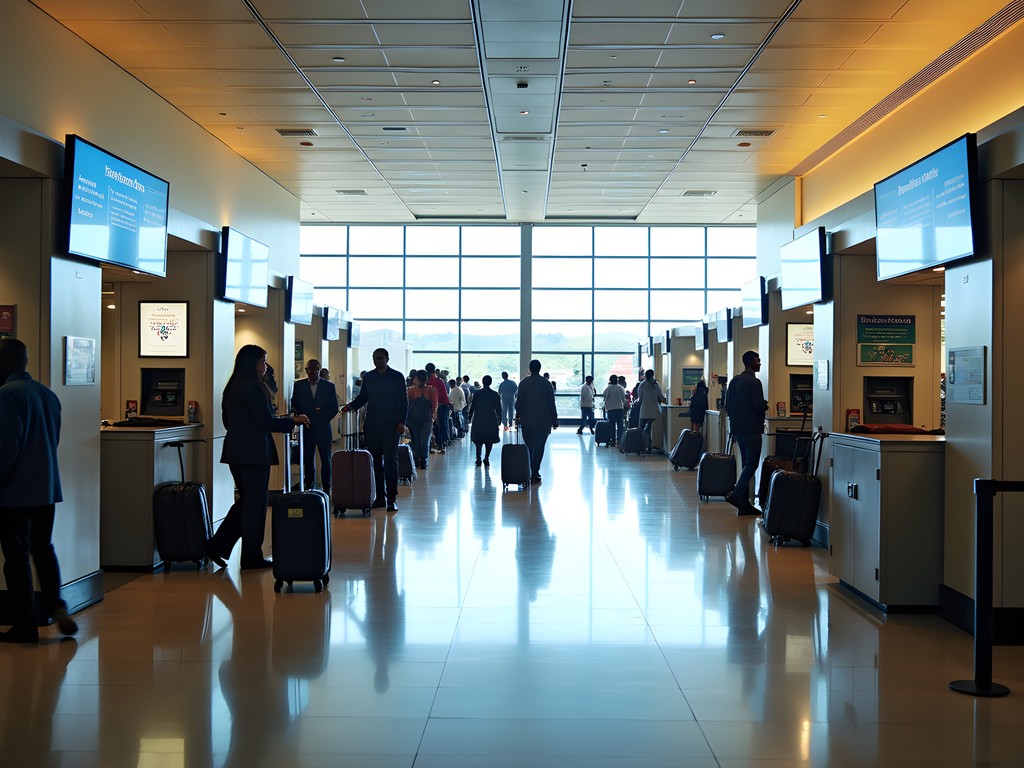
💡 Pro Tips
- Download the Uber app before arrival as local SIM cards aren't available inside the airport terminal
- Have USD cash ready for visa payments and initial transportation costs
- If arriving late at night, pre-arrange transportation for safety and convenience
Boda Bodas: Uganda's Ubiquitous Motorcycle Taxis
Nothing epitomizes Ugandan transportation quite like the boda boda – motorcycle taxis that zip through traffic with remarkable efficiency, if not always with the highest regard for traffic laws. These two-wheeled chariots are everywhere, and mastering the boda boda system is essential for any visitor wanting authentic (and affordable) mobility.
My first boda ride was equal parts terrifying and exhilarating. Now, I wouldn't explore Kampala any other way. The key is finding reliable drivers and negotiating fares upfront. Short trips within city centers typically cost 3,000-5,000 UGX ($0.80-1.40), while longer journeys might run 7,000-15,000 UGX ($2-4).
For safety-conscious travelers (which should be everyone), I highly recommend using ride-hailing apps like SafeBoda or Uber. SafeBoda drivers are identifiable by their bright orange vests, provide helmets, and follow a code of conduct. The app calculates standard fares, eliminating haggling and significantly reducing the chance of being overcharged as a foreigner.
Safety note: While I've logged countless boda miles across Uganda, I never ride without my travel insurance and always wear a helmet (bring your own foldable helmet if you're particularly safety-conscious – they're rarely provided outside of SafeBoda).
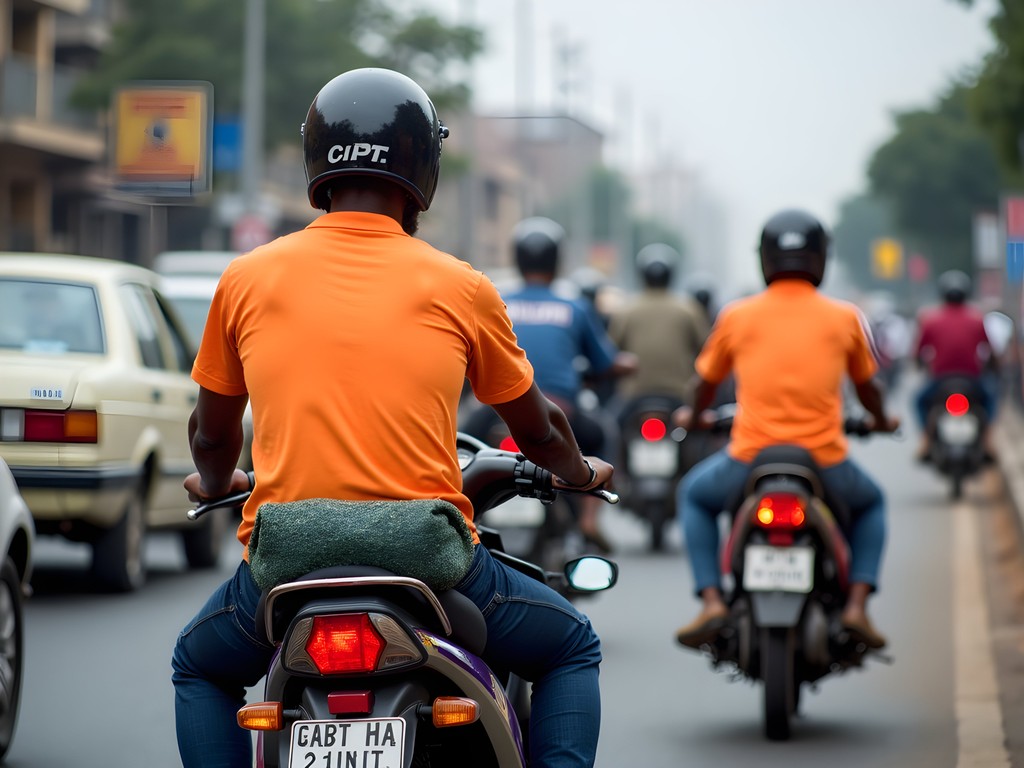
💡 Pro Tips
- Download SafeBoda app for safer, meter-based motorcycle taxi rides
- Always negotiate fares before getting on a boda boda if not using an app
- Consider carrying a lightweight dust mask for longer boda journeys on dusty roads
Matatus & Taxis: Decoding Uganda's Public Transport Network
If boda bodas represent Uganda's spontaneous spirit, matatus (shared minibuses) embody its communal soul. These 14-seater vans form the backbone of Uganda's public transportation, connecting every town and village through a complex network that operates on its own mysterious schedule.
Matatus gather at designated taxi parks in every town – chaotic, crowded spaces that initially overwhelmed my senses but soon revealed their own internal logic. Each matatu displays its destination, and conductors enthusiastically call out routes. The system works on a fill-and-go basis – vehicles depart only when full (and 'full' in Uganda often means extraordinarily packed).
For budget travelers, matatus are unbeatable value – a 3-4 hour journey between major towns might cost just 15,000-25,000 UGX ($4-7). However, they trade comfort for cost. On my journey from Kampala to Jinja, I found myself wedged between a woman with a live chicken and a man with an enormous sack of potatoes, with Ugandan pop music blasting and frequent stops to collect more passengers.
For longer journeys, consider upgrading to coaches operated by companies like Link Bus, Elgon Flyer, or YY Coaches. These offer assigned seating, air conditioning (sometimes), and direct routes between major destinations. I particularly recommend Link Bus for western routes to Fort Portal and beyond – their reclining seats made the 5-hour journey much more comfortable.
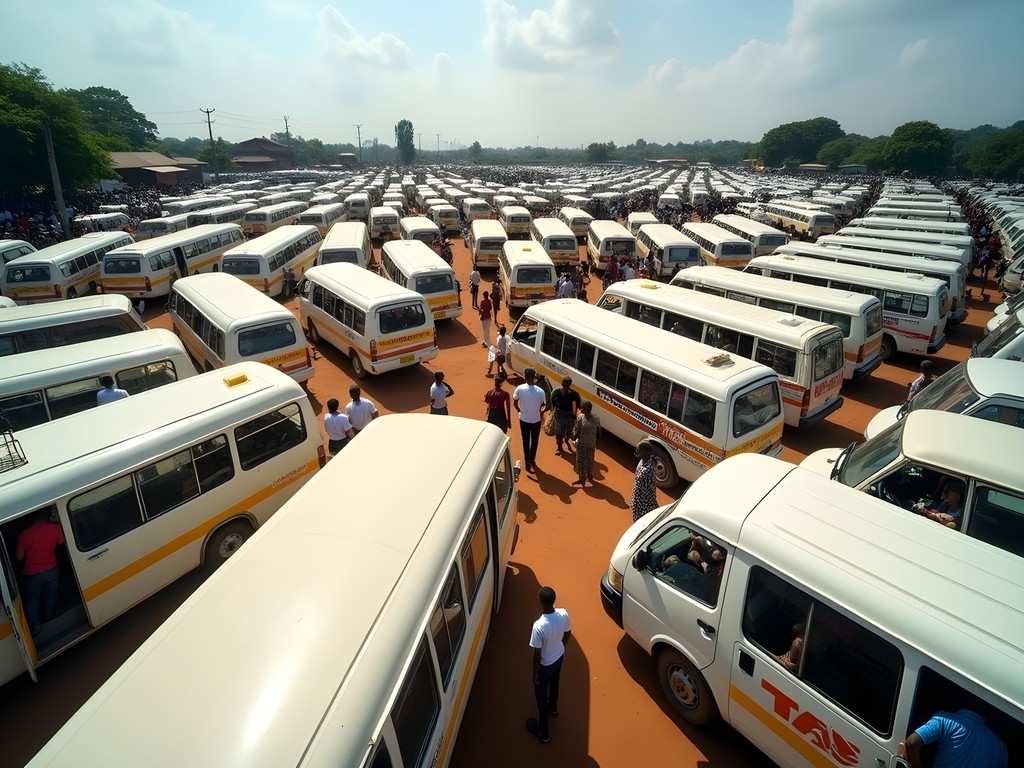
💡 Pro Tips
- Arrive at taxi parks early in the day for long-distance matatus to ensure departure
- Keep valuables on your person, not in overhead storage on public transport
- For overnight journeys, choose established coach companies rather than matatus
Safari Transportation: Navigating Uganda's Natural Wonders
Uganda's greatest treasures lie in its national parks, and getting to them requires specialized transportation. For budget travelers, joining group safaris is the most economical approach – companies like Red Chilli, Marafiki, and Gorilla Tours offer scheduled departures to popular destinations like Murchison Falls and Queen Elizabeth National Park.
For my gorilla trekking adventure in Bwindi Impenetrable Forest, I opted for a shared safari van, splitting costs with three other travelers I met at a hostel in Kampala. While certainly not luxury travel, our trusty 4x4 safari vehicle handled the challenging roads admirably, and the shared experience created friendships that lasted well beyond Uganda.
If your budget allows, hiring a private vehicle with driver/guide provides maximum flexibility. Expect to pay $80-150 per day depending on vehicle type and itinerary. After years of travel photography across five continents, I've learned that transportation flexibility often yields the best photo opportunities – like when our driver willingly stopped for 20 minutes so I could photograph a spectacular sunset over Lake Bunyonyi.
Regardless of your safari transportation choice, pack a microfiber travel towel for those dusty, bumpy rides. Uganda's infamous 'African massage' (the bone-jarring experience of traveling unpaved roads) is real, and you'll want something to wipe dust from your face, camera, and everything else.
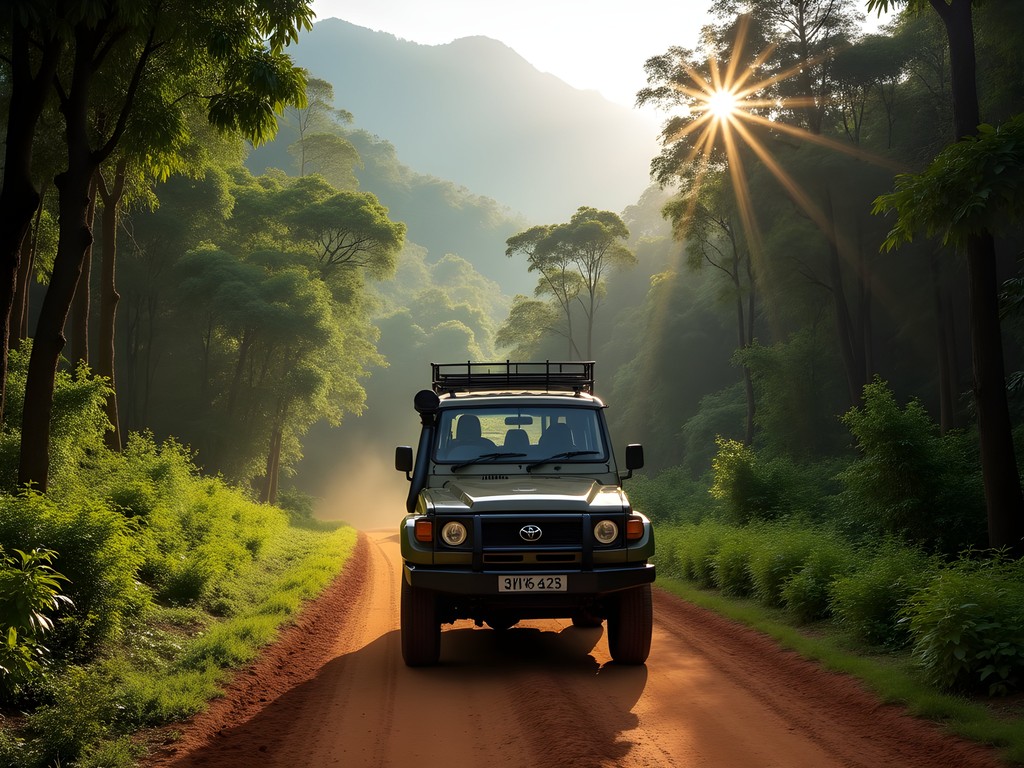
💡 Pro Tips
- Book safari transportation at least 2-3 days in advance during high season
- Carry motion sickness remedies for winding mountain roads in western Uganda
- Bring a portable phone charger for long safari drives as many vehicles lack charging ports
Rural Transportation: Embracing the Adventure
Some of my most cherished Ugandan memories came from venturing beyond the tourist circuit into rural communities, where transportation becomes both more challenging and more authentic. In remote areas, traditional matatus give way to 'special hires' (private taxis), motorcycle bodas, and occasionally pickup trucks that serve as impromptu public transport.
During my stay near Sipi Falls, I discovered that many rural routes operate on weekly market schedules rather than daily timetables. Villages might have transportation links only on specific market days, requiring flexibility and patience – qualities that serve all travelers well in Uganda.
For crossing Lake Bunyonyi's scattered islands, wooden canoes and small motorboats become the transportation mode of choice. The dry bag I brought proved essential for protecting my camera equipment during these water crossings.
The beautiful reality of rural Ugandan transportation is that something always materializes when needed. When our planned ride from a remote village near the Rwandan border fell through, the community quickly arranged alternative transport on the back of a coffee delivery motorcycle. These unplanned adventures often become the stories you tell for years afterward.
Practicing mindfulness during these uncertain transportation moments has helped me embrace the journey rather than fixating on the destination – a lesson from my Japanese heritage that serves me particularly well in Uganda's go-with-the-flow transportation landscape.
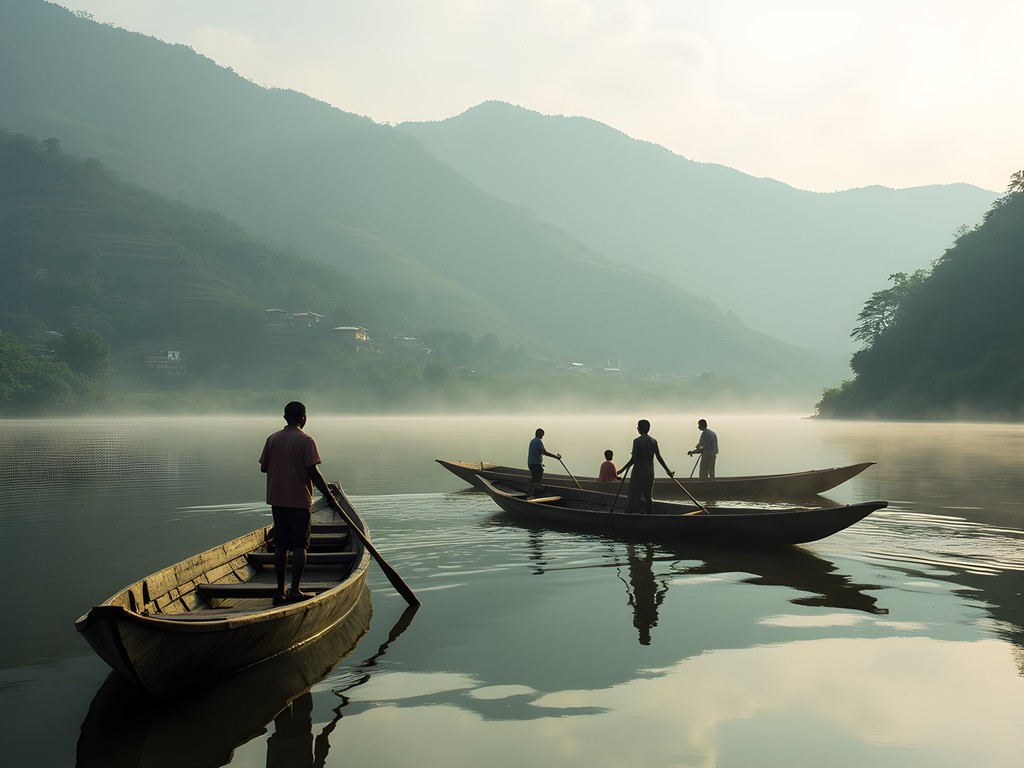
💡 Pro Tips
- Learn basic Luganda phrases like 'webale' (thank you) and 'meerembe' (slowly) for rural travel
- Always carry small denominations of Ugandan shillings for rural transportation where change is scarce
- Pack a headlamp for navigating rural areas after dark when transportation is delayed
Final Thoughts
Navigating Uganda's transportation tapestry requires flexibility, patience, and a sense of adventure – qualities that ultimately enrich your experience of this extraordinary country. From the heart-stopping excitement of your first boda boda ride to the meditative rhythm of a wooden canoe crossing Lake Bunyonyi, how you move through Uganda becomes as meaningful as where you go.
As someone who has found profound connections between my Japanese-American heritage and Uganda's blend of tradition and modernity, I encourage you to approach transportation not merely as a means to reach destinations, but as a cultural experience unto itself. The conversations with fellow matatu passengers, the spectacular roadside views from a safari vehicle, and even the occasional frustrations of delayed departures – these are the threads that weave together your Ugandan story.
Wherever your Ugandan journey takes you, move through this beautiful country with respect, curiosity, and the willingness to surrender to its unique rhythms. The pearl of Africa reveals itself most generously to those who embrace both the journey and the destination.
✨ Key Takeaways
- Use ride-hailing apps like SafeBoda and Uber for safer, fairly-priced urban transportation
- Build flexibility into your itinerary to accommodate Uganda's unpredictable transportation schedules
- Consider splurging on private transportation for national parks and remote destinations
📋 Practical Information
Best Time to Visit
year-round, with June-August and December-February being driest
Budget Estimate
$30-50/day for transportation costs
Recommended Duration
minimum 2 weeks
Difficulty Level
Intermediate

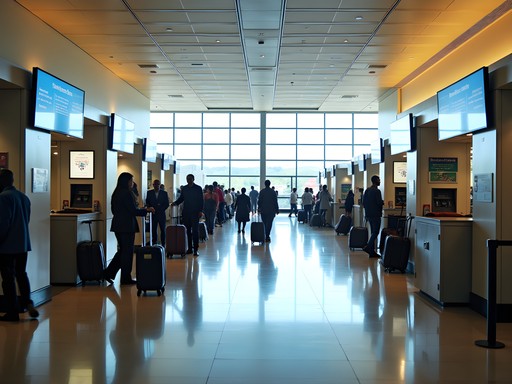
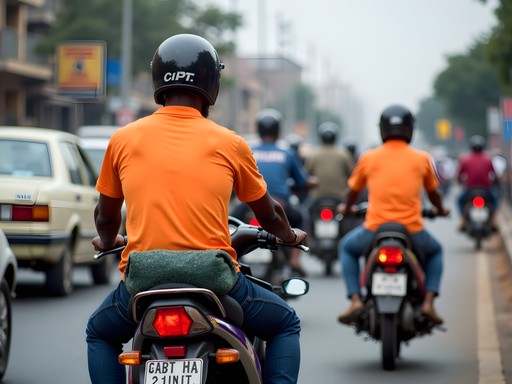
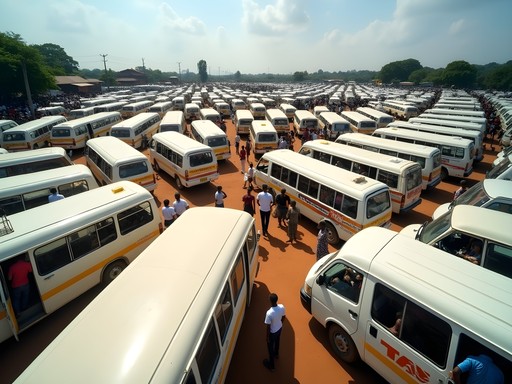
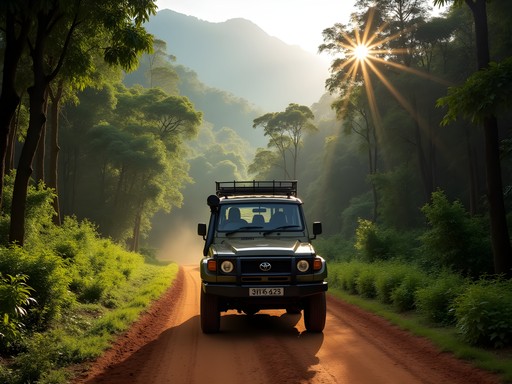
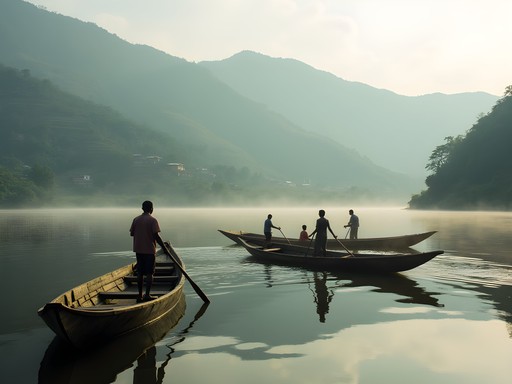



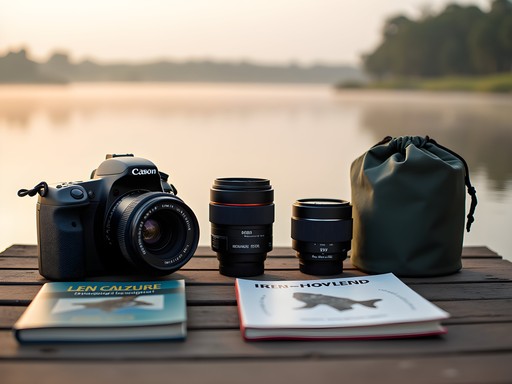
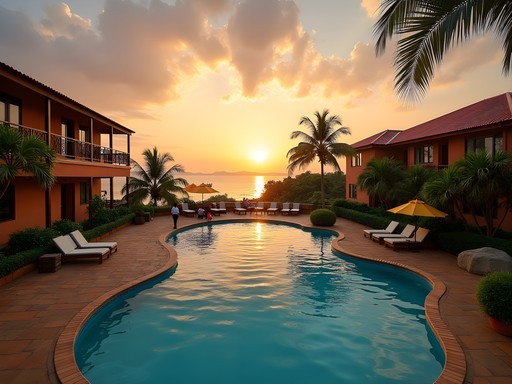
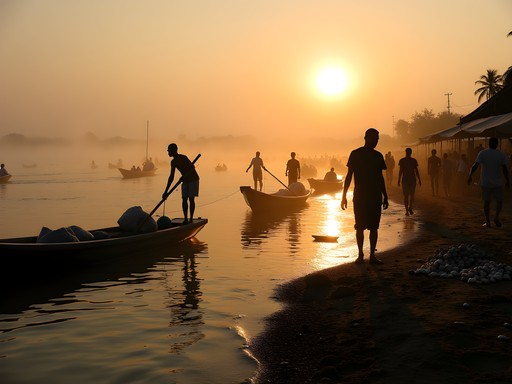
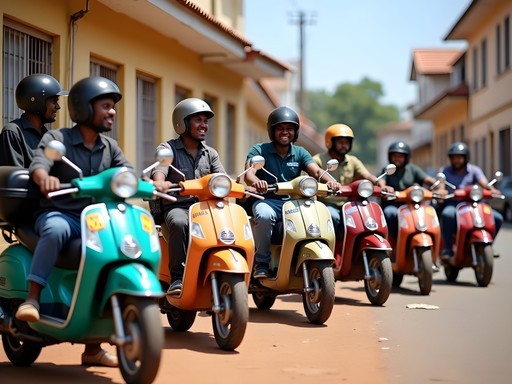

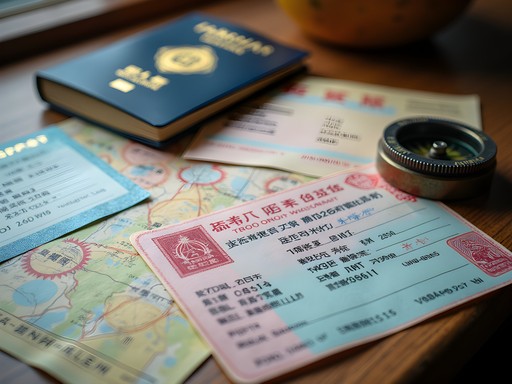
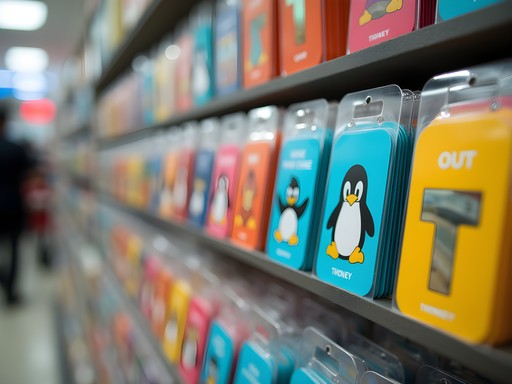
Comments
SoloFemTraveler
Going to Uganda next month! As a solo female traveler, any specific safety tips for using public transport there?
EastAfricaExpert
I traveled solo through Uganda last year. Sit near other women on matatus when possible, keep valuables in a money belt under clothing, and don't be afraid to be assertive if someone's making you uncomfortable. Most importantly, trust your gut!
Sarah Powell
All great advice above! I'd add: avoid night travel completely, let your accommodation know where you're going each day, and use ride-hailing apps in Kampala when possible instead of hailing random taxis.
GorillaTrekker
If you're heading to Bwindi for gorilla trekking, definitely arrange private transport through your lodge. The roads are rough and public transport rarely goes all the way there. We learned this the hard way and ended up stranded for hours!
backpackone
Did you book your gorilla permits in advance? I heard they sell out months ahead.
GorillaTrekker
Absolutely! Booked them 6 months ahead through the Uganda Wildlife Authority website. They're expensive but 100% worth every penny.
AfricaDreaming
Love this! The boda boda section brought back so many memories!
Sarah Powell
Elizabeth, this is such a comprehensive guide! I was in Uganda last year and would add that pre-arranging airport pickup saved me a lot of hassle. For anyone heading there, I recommend having your accommodation arrange transport from Entebbe - the peace of mind is worth the extra cost, especially after a long flight. One thing I learned the hard way: always negotiate matatu prices BEFORE getting in, and keep small bills handy as drivers rarely have change. Also, I found my travel vest invaluable for keeping valuables secure on crowded transport. The hidden pockets were perfect for stashing money and my phone during those bumpy rides!
UgandaLover22
So true about negotiating beforehand! I got seriously overcharged my first day because I didn't know better.
TravelingTeacher
Did anyone try the special hire taxis? Worth the extra cost?
Sarah Powell
Special hire taxis are definitely worth it for longer journeys or at night. I used them a few times between Kampala and Jinja and felt much safer. Just make sure to use ones recommended by your hotel.
backpackone
Great guide! How safe are the boda bodas really? I've heard mixed things and I'm heading to Kampala next month.
Sarah Powell
I've used boda bodas extensively in Uganda. They're convenient but definitely risky. Always insist on a helmet and find drivers through your accommodation if possible. For Kampala specifically, I recommend using SafeBoda app - they're more reliable and actually follow traffic rules!
backpackone
Thanks Sarah! Will definitely download that app before I go. Did you find them much more expensive than the regular ones?
Sarah Powell
They cost slightly more but totally worth it for peace of mind. Maybe 10-15% more expensive but still very affordable by Western standards.
Megan Martin
Elizabeth, thank you for this comprehensive guide. As someone who travels to Uganda quarterly for work, I can confirm this is all excellent advice. One additional tip for business travelers: many of the larger hotels offer their own airport pickup services which can be pre-arranged. They're more expensive than standard taxis but provide peace of mind when arriving late at night. Also, for those staying in Kampala for more than a few days, consider using ride-hailing apps as mentioned - they're transforming urban transportation in Uganda and eliminate the need for price negotiations.
tripgal
Has anyone done the journey from Entebbe to Jinja? Planning to head there for some rafting after landing.
escapeguide
Did anyone use the airport shuttle services mentioned? Worth it or better to grab a taxi?
Megan Martin
I used the airport shuttle on my business trip last month. It was reliable and comfortable, but if you're going directly to a specific hotel, a pre-arranged taxi might be more convenient. I use this transportation app which works in Entebbe/Kampala area and gives you upfront pricing.
blueperson
Just booked my trip to Uganda for October! This couldn't have come at a better time. The boda bodas sound scary but I think I'll have to try at least once for the experience!
photoguy
Definitely try them! Just make sure you use the SafeBoda app Elizabeth mentioned - way safer than hailing random ones on the street.
blueperson
Thanks for the tip! Downloading that app now.
Claire Hawkins
This brought back so many memories! We traveled through Uganda with our two kids (ages 8 and 10) last summer, and transportation was definitely our biggest concern beforehand. For families, I highly recommend arranging a private driver for the longer journeys. Our driver Moses became like family by the end of our two weeks! For the safari portion in Queen Elizabeth National Park, we splurged on a proper safari vehicle with a pop-up roof which made all the difference for wildlife viewing. The kids still talk about standing up through the roof to watch elephants crossing right in front of us! One tip for families: bring plenty of entertainment for the longer drives as road conditions can make progress slow at times.
Elizabeth Stephens
Thanks for adding the family perspective, Claire! That pop-up roof safari vehicle is definitely worth the splurge. And great point about entertainment for the kids during those bumpy rides!
Venture X
Premium card with 2X miles, $300 travel credit, Priority Pass